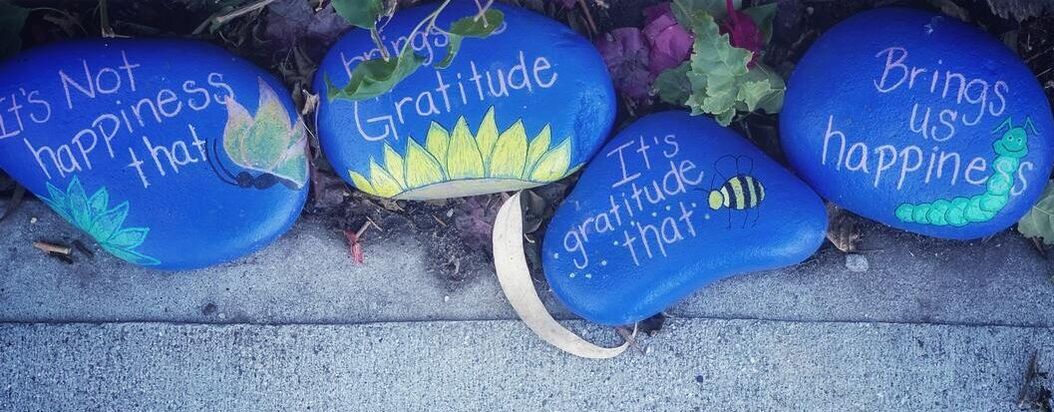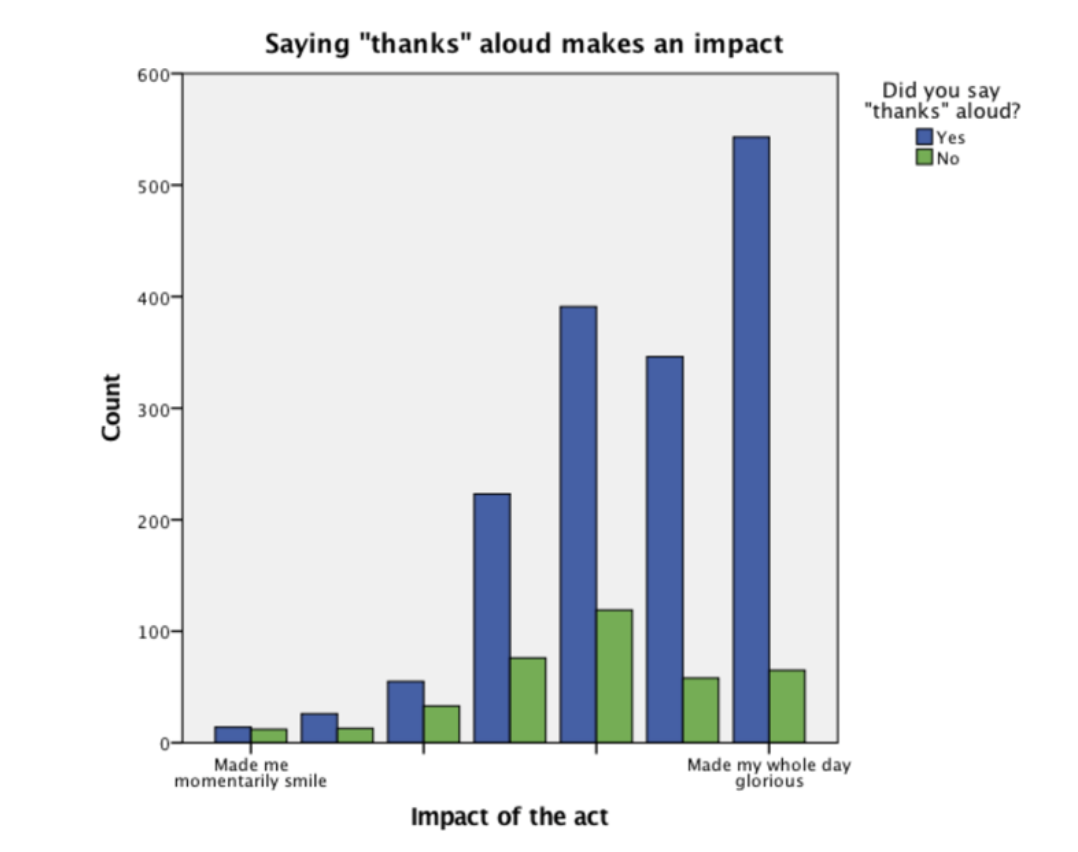Saying what you’re grateful for is good for you and others
By Katie Benzan
December 6, 2021
Image Credit: Courtesy of Donald Giannatti for Unsplash
How often do we take the time to express our gratitude? Around Thanksgiving, it seems like it’s always on our minds.
Gratitude is a powerful emotion; it’s our way of acknowledging the good things of life.
Alexa Gutchess, a senior criminology and criminal justice major, said saying thanks at Thanksgiving started to mean a lot again around her sophomore year of high school because her family was going through a rough patch. “So I was grateful that I still had my parents in my life,” she said.
Expressing their gratitude together was a great way to reconnect with her family, Gutchess said.
The benefits of gratitude can be psychological, social or physical, according to Nationwide Children’s. Expressing gratitude produces positive emotions and thoughts and enhances your mood. The practice can also improve interpersonal relationships and likeability, by creating better communication and empathy. Saying what you’re grateful for could even strengthen your immune system, reduce body pains and aches and improve your sleep cycle.
Sara Cohn, a senior psychology major, enjoyed her family tradition of going around the Thanksgiving dinner table and saying what she was grateful for when growing up. “It made me reflect on what was going on in my little life and think about the people most important to me,” she said.
When we express and receive gratitude, our brain releases dopamine and serotonin - two neurotransmitters that make us feel ‘good.’
In fact, the Mindfulness Awareness Research Center at the University of California at Los Angeles found that gratitude changes the neural structures in the brain, and makes us feel happier and more content. By activating the reward center of the brain, gratitude alters the way we see the world and ourselves.
However, it’s one thing to think or write about your gratitude, and another to say it out loud.
The John Templeton Foundation found many more people reported a stronger positive impact on their day when they had actually said ‘thank you’ to the person to whom they felt grateful.
Gratitude is a powerful emotion; it’s our way of acknowledging the good things of life.
Alexa Gutchess, a senior criminology and criminal justice major, said saying thanks at Thanksgiving started to mean a lot again around her sophomore year of high school because her family was going through a rough patch. “So I was grateful that I still had my parents in my life,” she said.
Expressing their gratitude together was a great way to reconnect with her family, Gutchess said.
The benefits of gratitude can be psychological, social or physical, according to Nationwide Children’s. Expressing gratitude produces positive emotions and thoughts and enhances your mood. The practice can also improve interpersonal relationships and likeability, by creating better communication and empathy. Saying what you’re grateful for could even strengthen your immune system, reduce body pains and aches and improve your sleep cycle.
Sara Cohn, a senior psychology major, enjoyed her family tradition of going around the Thanksgiving dinner table and saying what she was grateful for when growing up. “It made me reflect on what was going on in my little life and think about the people most important to me,” she said.
When we express and receive gratitude, our brain releases dopamine and serotonin - two neurotransmitters that make us feel ‘good.’
In fact, the Mindfulness Awareness Research Center at the University of California at Los Angeles found that gratitude changes the neural structures in the brain, and makes us feel happier and more content. By activating the reward center of the brain, gratitude alters the way we see the world and ourselves.
However, it’s one thing to think or write about your gratitude, and another to say it out loud.
The John Templeton Foundation found many more people reported a stronger positive impact on their day when they had actually said ‘thank you’ to the person to whom they felt grateful.
Image Credit: Katie Benzan for The Campus Trainer. Data collected from the John Templeton Foundation
Thanksgiving is a great time to count your blessings because it improves your own health, and that of your family and friends.
Cohn remembers looking forward to that part of Thanksgiving dinner. She said hearing what meant a lot to her family definitely boosted her mood.
“Now looking back, I realize how lucky I was to be able to gather with my little family and share those moments.”
University of Maryland professor Dylan Selterman, who teaches the course 'Psychology of Happiness', said, the more the merrier. “Once a year on Thanksgiving is better than nothing but scientific studies have shown that it's much better to do it with some regularity. My wife and I do this together every evening.”
Declaring praise and thankfulness moves the blessings far beyond ourselves.
Cohn remembers looking forward to that part of Thanksgiving dinner. She said hearing what meant a lot to her family definitely boosted her mood.
“Now looking back, I realize how lucky I was to be able to gather with my little family and share those moments.”
University of Maryland professor Dylan Selterman, who teaches the course 'Psychology of Happiness', said, the more the merrier. “Once a year on Thanksgiving is better than nothing but scientific studies have shown that it's much better to do it with some regularity. My wife and I do this together every evening.”
Declaring praise and thankfulness moves the blessings far beyond ourselves.
|
|
Learn more |
© COPYRIGHT 2020. ALL RIGHTS RESERVED.
|

